
Cybercrime has become a global problem and is growing faster than ever. Photo: VNA
A turning point in global cooperation
On October 25-26, the Hanoi Convention will be opened for signing in Hanoi with the theme “Combating Cybercrime – Sharing Responsibility – Looking to the Future”. The event will bring together the UN Secretary-General, heads of state and leaders of more than 100 countries, and dozens of international delegations, reflecting the stature of a new global cooperation initiative in the digital age.
The Hanoi Convention was adopted at the UN General Assembly nearly a year ago, with the aim of creating a unified legal framework to prevent, investigate and prosecute cross-border cybercrime; promoting the sharing of electronic evidence, coordinating investigations and forming a training and technical support network between countries. This is the first UN document on cybercrime prevention after more than 20 years since the Budapest Convention (2001) - a symbol of global efforts to build a safe, stable and humane cyberspace.
Trusted Bridge
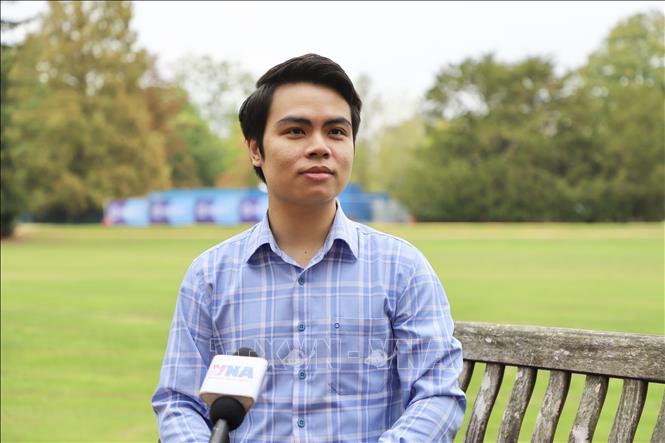
Dr. Vu Viet Anh, Cybercrime Center, University of Cambridge (UK), gives an interview to VNA on the occasion of Vietnam holding the signing ceremony of the United Nations Convention against Cybercrime. Photo: Huu Tien/VNA reporter in the UK
According to Dr. Vu Viet Anh, a researcher at the Cybercrime Center at the University of Cambridge (UK), the adoption of the Hanoi Convention “has great symbolic significance as Vietnam becomes a trusted bridge between developed and developing countries, promoting dialogue based on the principles of equality, respect for sovereignty and mutual benefit”. He said that in the context of many differences between countries in terms of law and cyberspace management, Vietnam’s flexible intermediary role clearly demonstrates its increasingly mature multilateral diplomatic capacity, as Vietnam not only participates but also actively contributes to shaping new international standards.
Sharing the same view, Professor Carl Thayer (Australian Defence Academy, University of New South Wales, Australia) commented that Vietnam's selection to host the signing ceremony reflects its increasing position and capacity in cyber security. He cited that Vietnam currently ranks 17th out of 194 countries in terms of global cyber security capacity. Vietnam has achieved many achievements in multilateralization and diversification of international relations, which have been recognized and highly appreciated by the international community.
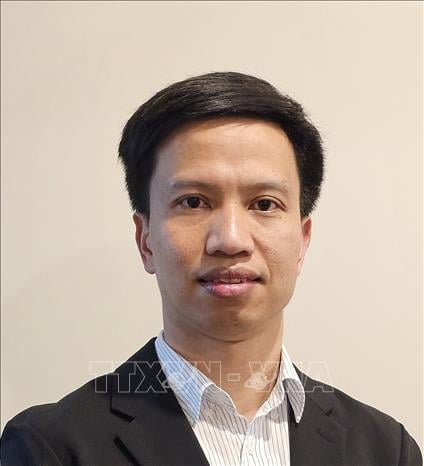
Associate Professor, Dr. Pham Duc Son - currently working at the Faculty of Electrical, Computer and Mathematical Sciences at Curtin University (Australia), and is also the President of the IEEE Computer Society branch in Western Australia. Photo: VNA
According to Associate Professor, Dr. Pham Duc Son (Curtin University, Australia), this event also emphasizes the growing influence of Vietnam in shaping global digital governance. Vietnam not only participates, but also builds international consensus, helping countries together deal with one of the most complex challenges of our time: cybercrime. In many aspects, the Hanoi Convention will bear Vietnam's name as a symbol of peace, trust and shared responsibility in the digital age.
Legal "shield"
According to Associate Professor, Dr. Pham Duc Son, the Hanoi Convention inherits and enhances the effectiveness of cooperation of the Budapest Convention on a global scale, helping countries - regardless of their development levels - to share information, support investigations and unify legal procedures in handling cross-border cybercrime. This is a universal and comprehensive cooperation platform, ensuring that every country has a voice in building global digital security.
Sharing the same view, the Algerian daily Cresus called the Hanoi Convention not only a legal instrument but also a humanistic vision of the digital future, placing human rights and privacy at the center. Ms. Ghada Waly, Executive Director of the United Nations Office on Drugs and Crime (UNODC), emphasized: “This is a historic milestone that paves the way for unprecedented global cooperation in the fight against cybercrime.”
According to the World Economic Forum (WEF) Global Cybersecurity Outlook 2025, the total cost of global cybercrime in 2024 exceeded $1 trillion, with some countries losing more than 3% of their GDP. Differences between national legal frameworks are creating gaps for cybercriminals to exploit, making the need for a common legal corridor urgent. The Hanoi Convention is expected to fill that gap, create an effective coordination mechanism between countries, and increase the ability to track and protect global users.
Not only at the global level, the Hanoi Convention also creates momentum to promote deeper regional cooperation. At the regional level, Master Thong Mengdavid, geopolitical analyst at the Institute of International Studies and Public Policy, Royal University of Phnom Penh (Cambodia), commented that the Hanoi Convention will help accelerate the process of legal integration of cybersecurity in ASEAN, especially in management, sharing of electronic evidence and legal cooperation. He said that ASEAN can establish a common framework standard and coordination system, creating trust for investors and people, while promoting the safe and sustainable development of e-commerce, fintech and cross-border digital trade.
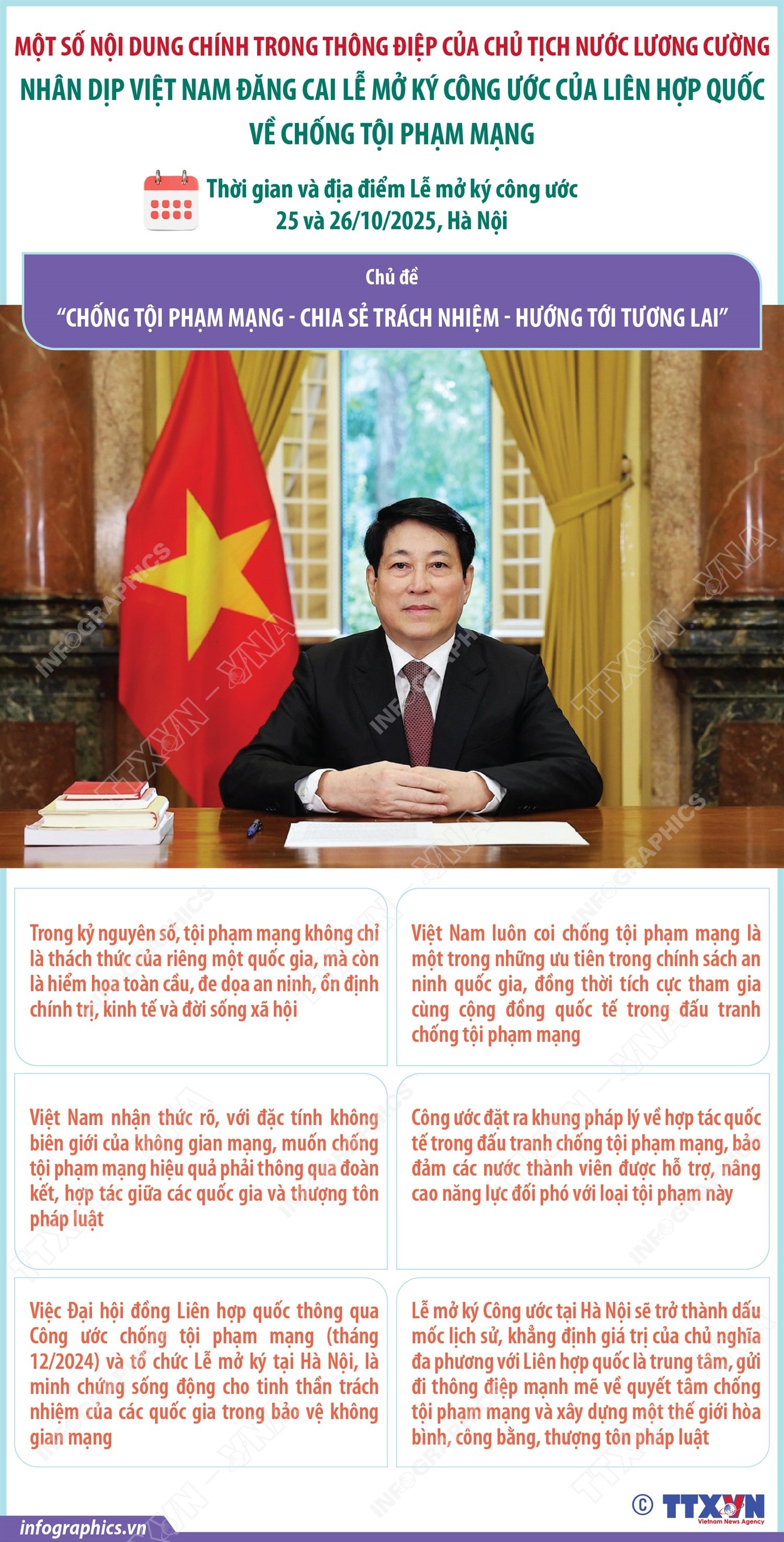
At the national level, for Vietnam, the Hanoi Convention opens up opportunities for enhanced cooperation in investigations, technology transfer and specialized training, thereby expanding the domestic cybersecurity services market and enhancing digital autonomy. Vietnam promptly issued the Cybersecurity Law in 2019 - a strategic step to protect people and businesses from sophisticated forms of cybercrime such as ransomware, online fraud, data theft, terrorism or attacks on critical infrastructure. Thanks to that, Vietnam has risen to the top 20 countries leading in global cybersecurity by 2024, with more than 80% of the population participating in the digital space.
Speaking about the upcoming event, President Luong Cuong affirmed: "Vietnam always considers fighting cybercrime as one of the priorities in its national security policy, and actively participates with the international community in the fight against cybercrime. Vietnam clearly understands that, given the borderless nature of cyberspace, to effectively fight cybercrime, it must be through solidarity, cooperation between countries and the rule of law."
The Hanoi Convention, therefore, is not only a legal “shield” to protect global cyberspace, but also a symbol of Vietnam’s increasingly proactive, responsible and creative role in the effort to create a safe, trustworthy and humane digital environment for all humanity, towards a safe and sustainable digital era. The capital city of Hanoi, as the place to mark this convention, affirms that Vietnam is a responsible and trustworthy partner in the common effort to build a safe and transparent cyberspace. This is also a concrete step, contributing to the effective implementation of Resolution No. 57-NQ/TW on scientific breakthroughs, technological innovation and national digital transformation, paving the way for the country to develop strongly in the new era.
Source: https://baotintuc.vn/thoi-su/tam-khien-trong-the-gioi-so-20251023071904353.htm




![[Photo] Prime Minister Pham Minh Chinh chairs meeting on railway projects](https://vphoto.vietnam.vn/thumb/1200x675/vietnam/resource/IMAGE/2025/10/23/1761206277171_dsc-9703-jpg.webp)

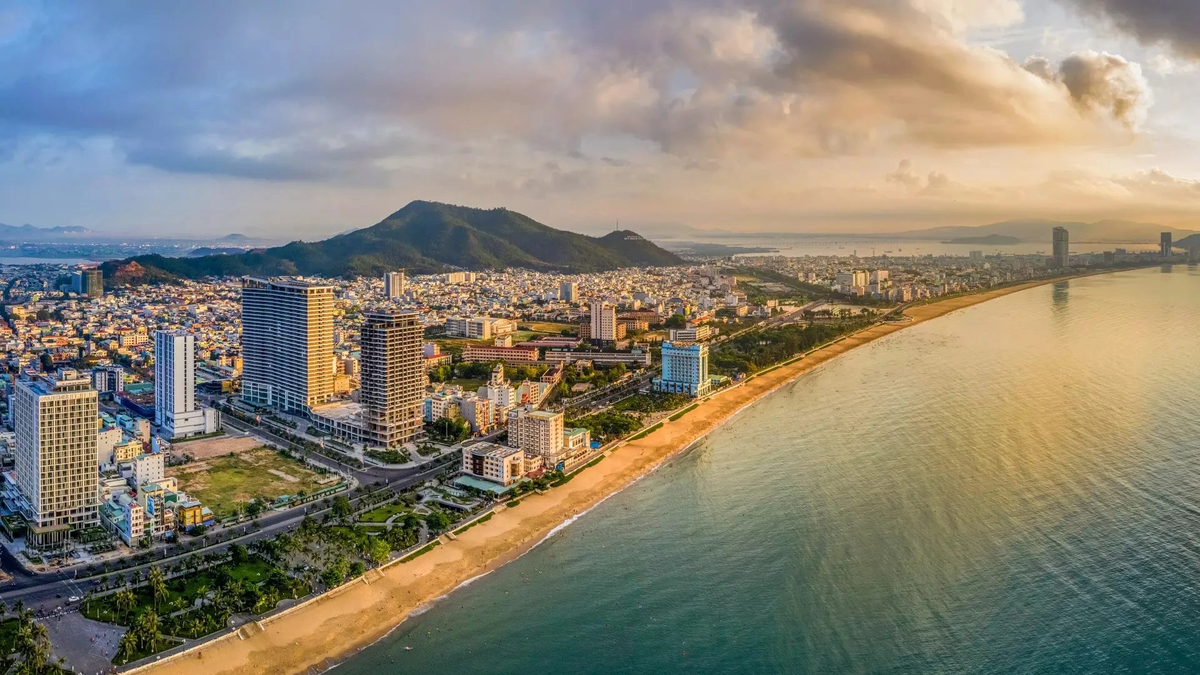

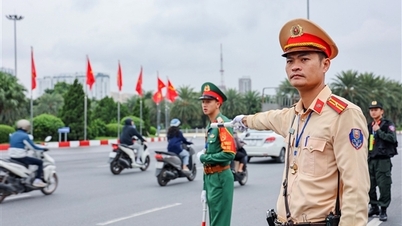

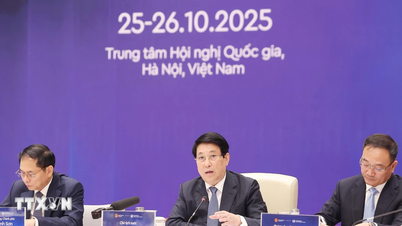

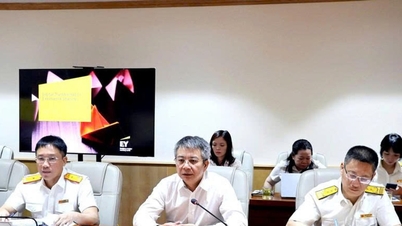


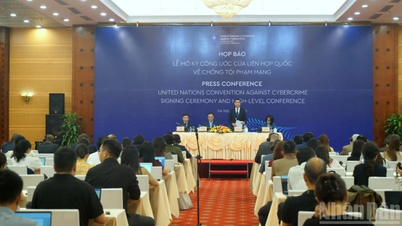

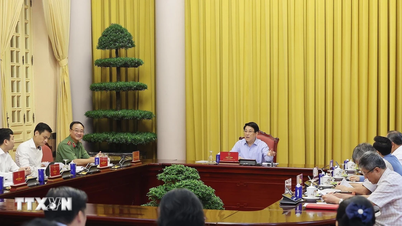
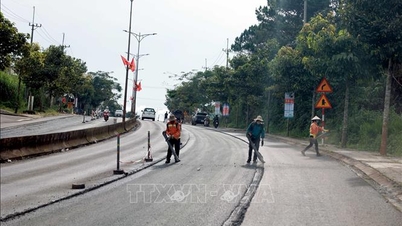
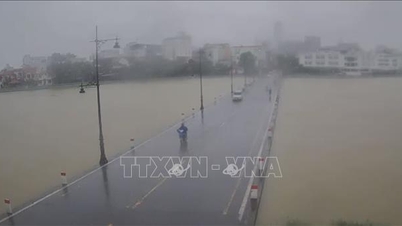
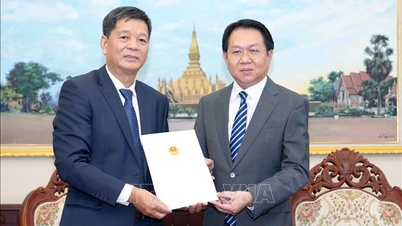
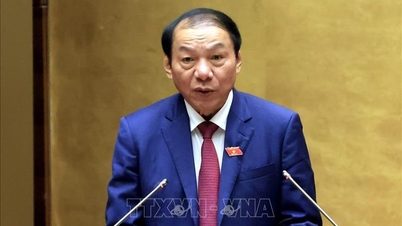
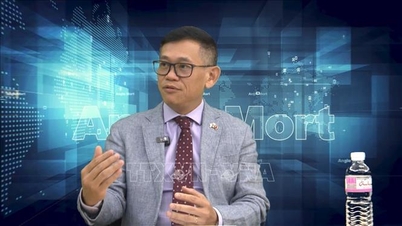
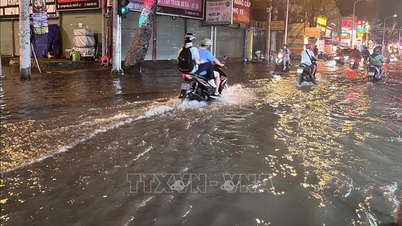




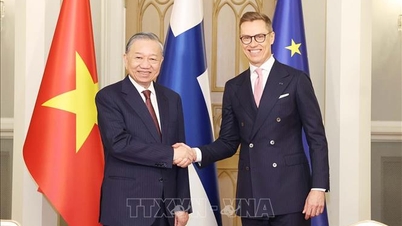
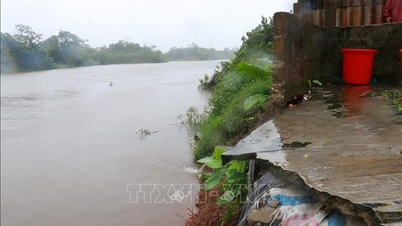

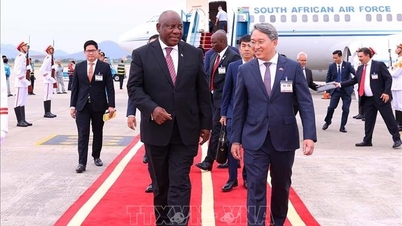
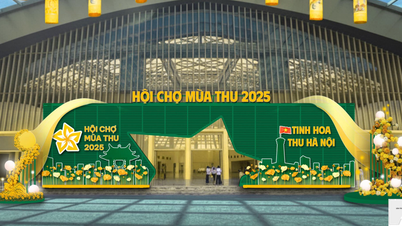




















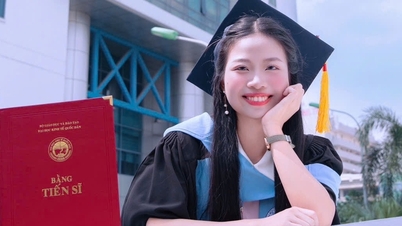
















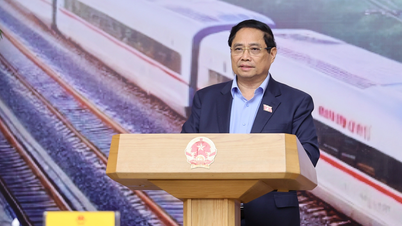

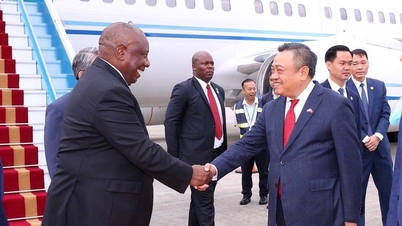








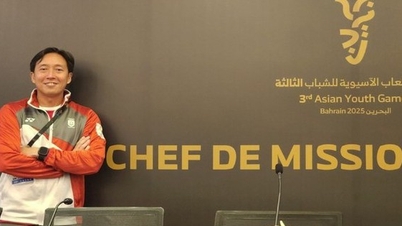
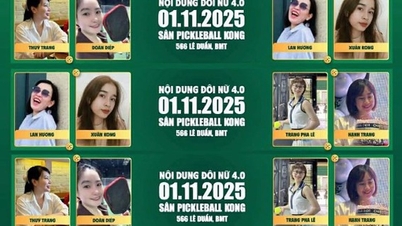
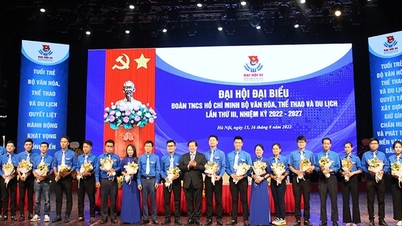
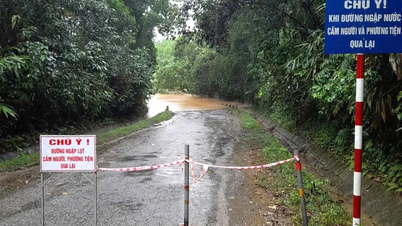

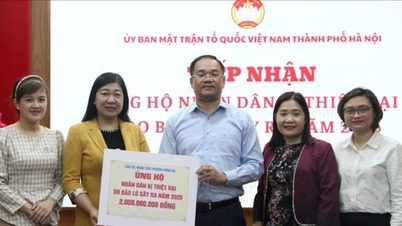

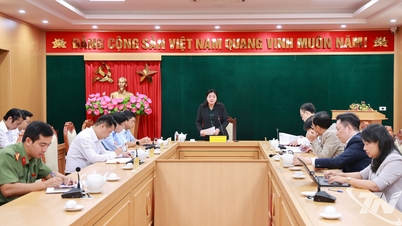



















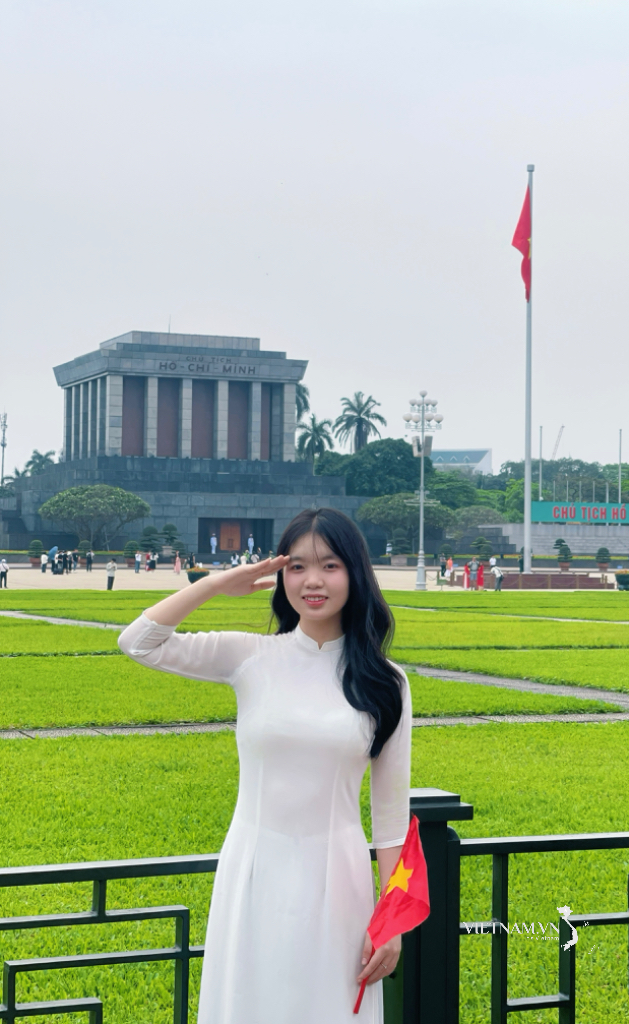
Comment (0)